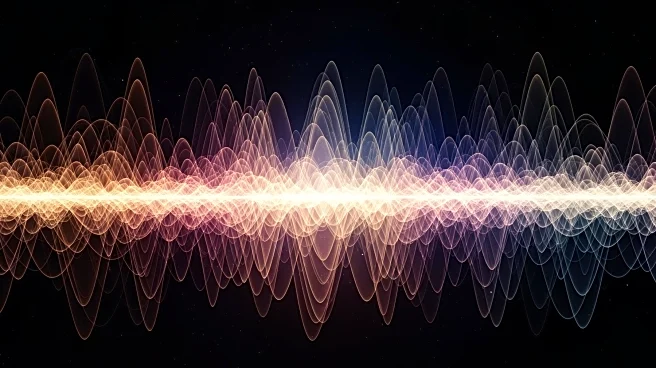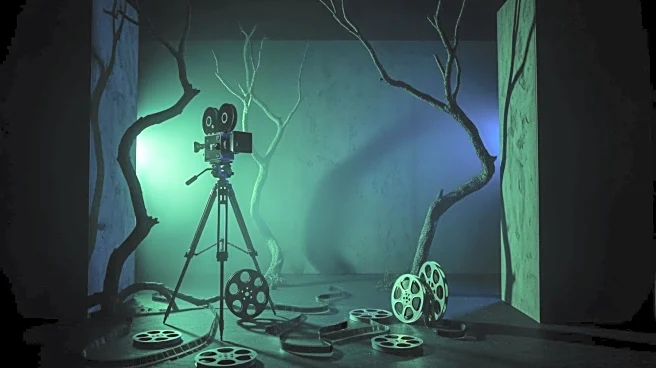What's Happening?
Recent research has uncovered significant findings in the field of quantum dynamics, specifically focusing on the phenomenon of constructive interference at the edge of quantum ergodicity. The study explores the complex correlations between many-body
degrees of freedom in quantum systems, which are crucial for simulating quantum dynamics. As systems grow in size or evolve over time, their dynamics often become ergodic, making it challenging to detect many-body correlations. The research utilizes experimental protocols that employ refocusing techniques to probe highly entangled dynamics, which are essential in quantum metrology and sensing. These protocols have been instrumental in studies related to chaos, black holes, and thermalization. The study leverages the Heisenberg picture of operator evolution to conceptualize these dynamics as interference problems, where correlations reflect coherent interference across many-body trajectories.
Why It's Important?
The findings have significant implications for the field of quantum computing and quantum information science. By enhancing the understanding of quantum correlations and interference, this research could lead to advancements in quantum metrology and sensing technologies. The ability to probe and manipulate quantum dynamics with greater precision could improve the development of quantum computers, which rely on the manipulation of quantum states. This research also contributes to the broader understanding of quantum chaos and thermalization, potentially impacting theoretical physics and the study of black holes. The insights gained from this study could pave the way for new experimental techniques and technologies that harness the unique properties of quantum systems.
What's Next?
Future research may focus on further exploring the applications of these findings in practical quantum computing and sensing technologies. There is potential for developing new experimental protocols that can more effectively utilize the interference framework to reveal quantum correlations. Additionally, researchers may investigate the implications of these findings for other areas of quantum physics, such as quantum cryptography and quantum communication. The continued exploration of quantum ergodicity and interference could lead to breakthroughs in understanding and controlling quantum systems, with wide-ranging applications across various scientific and technological fields.
Beyond the Headlines
The study highlights the intricate relationship between quantum dynamics and classical chaos, offering a deeper understanding of how quantum systems can exhibit chaotic behavior. This research challenges traditional assumptions about the linearity of quantum mechanics and its limitations in detecting chaos. By demonstrating the utility of time-reversal techniques in probing quantum dynamics, the study opens up new avenues for exploring the fundamental nature of quantum systems. These insights could lead to a reevaluation of existing theories and models in quantum physics, potentially influencing future research directions and technological innovations.















